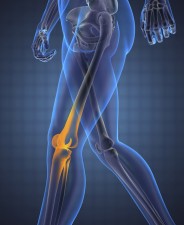 A history of current or past running did not contribute to a higher odds of developing knee osteoarthritis and may even have a slight protective effect, researchers found in a cross-sectional study of participants in the Osteoarthritis Initiative.
A history of current or past running did not contribute to a higher odds of developing knee osteoarthritis and may even have a slight protective effect, researchers found in a cross-sectional study of participants in the Osteoarthritis Initiative.
The study was presented by its lead author, Dr. Grace H-W. Lo, of Houston s Baylor College of Medicine, at the current meeting of the American College of Rheumatology in Boston. Entitled Habitual running at any time in life is not detrimental and may be protective of symptomatic knee osteoarthritis: Data from the Knee Osteoarthritis Initiative, the study included 2,683 subjects, mean age 64.5 years, with a mean body mass index (BMI) of 28 (non-obese). All participants had knee radiograph readings, and knee pain was assessed by questionnaire. Roughly 29% (n=776) of the subjects reported that they had run at some time in their lives.
"We asked specifically for people to think back over their lives between the ages of 12 to 18, 19 to 34, 35 to 49, and then greater than or equal to 50," explained Dr. Lo during a press conference at the annual meeting of the American College of Rheumatology. "During each of those age ranges we asked people to indicate the top three activities that they participated in. If they indicated running as one of those activities we indicated them as a runner for that particular time frame."
The researchers looked at the relationship between running over a lifetime and knee pain, radiographic osteoarthritis (ROA) of the knee, and symptomatic OA of the knee, "meaning that people had to have both pain and evidence of radiographic OA on the same knee," as Dr. Lo told MedPage Today.
They found that people who ran at any time of life had a lower prevalence of both frequent knee pain and symptomatic ROA compared with non-runners (35.0% versus 41.6%, odds ratio 0.87; and 22.8% versus 29.8%; OR 0.83, respectively) -- differences that remained statistically significant after adjusting for age, sex, and BMI, she said.
There is controversy regarding whether habitual running is beneficial or harmful to the knee because chronic, mechanical overloading could potentially physically damage structures within the knee, said Dr. Lo. "But, alternatively, runners have a lower BMI which we know is protective of knee OA.
Most previous studies looking at the relationship between running and knee OA have focused on elite male runners and are therefore not generalizable, she noted. "There's really little data out there addressing this question in the general population and so Dr. Lo's study is, I think, one of the first to look at this question in a population-based study," said moderator Rob McLean, DSc, MPH, an epidemiologist at Harvard Medical School in Boston.
ACSH s Dr. Gil Ross, who saw a lot of OA during his years in clinical practice, had this comment: While a 15 percent or so reduction in XRay-detected OA and symptomatic OA among this group of runners is nothing to stand up and cheer about, it does give some support to doctors who encourage more vigorous physical activity, even for patients with some degree of knee pain. Of course, it should not be construed as a carte blanche for marathon training for older people with knee pain, but it justifies a resounding go ahead when asked the question, Doc, can I still run although my knees hurt? Remember though, there is no substitute for getting back to your running weight!


